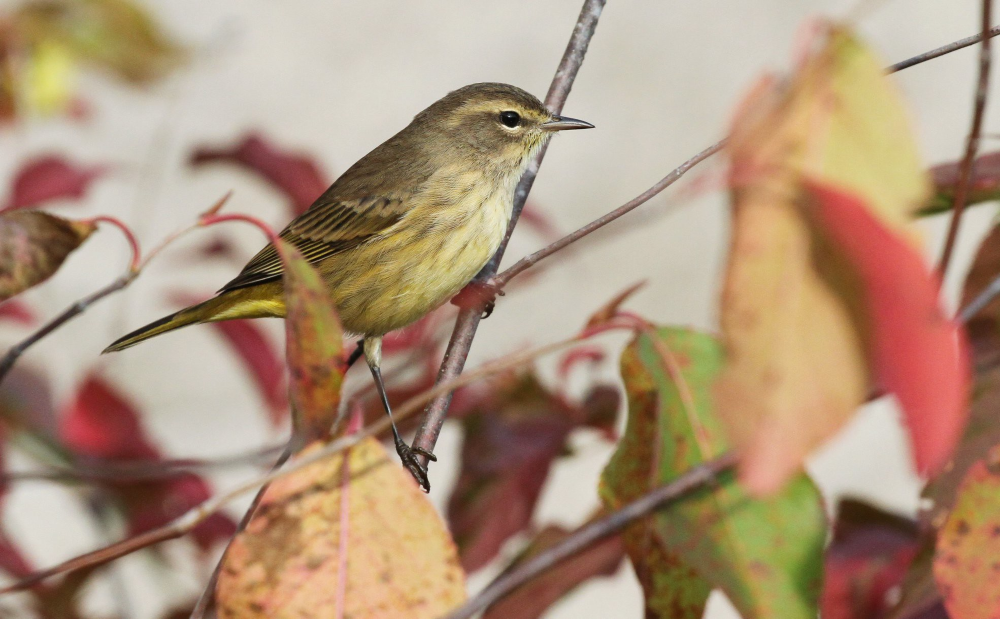We are excited to be back for another year of the Great Wisconsin Birdathon! In light of the COVID-19 pandemic last year, we adapted and extended the Birdathon to promote health and safety as top priorities for participants. It was thanks to the incredible creativity of our teams that we were able to pull off the most successful Birdathon on record, raising over $104,000 and engaging 65 teams across the state.
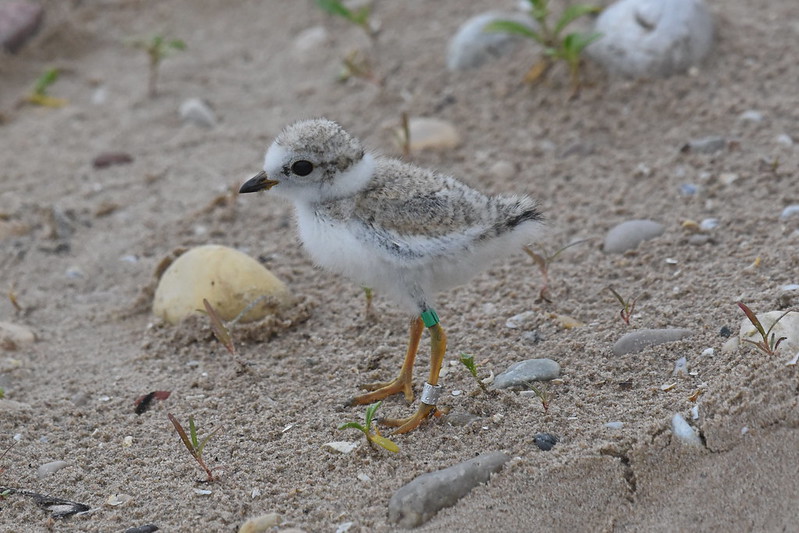
Great Wisconsin Birdathon proceeds go towards protecting species like Piping Plovers (our Bird of the Year!) but we want you to stay protected too! Photo Credit: Joel Trick
Looking ahead to this year’s event, COVID-19 remains a dynamic situation and we want to ensure that health and safety remain top priorities for our Birdathon teams.
We also hope that the Birdathon can yet again serve as a tool for connection this spring—encouraging teams to connect with nature, connect with local spaces (include backyards!), and importantly connect with friends and family.
As teams begin planning their Birdathon days, please keep the following in mind to safely enjoy the birds:
- Bird local to avoid unnecessary travel.
- Keep your birding groups small and continue to practice social distancing measures.
- Do not go birding if you have a fever or other symptoms, or an active COVID-19 infection.
- Do not share binoculars, scopes, or equipment with others.
- Adhere to recommended public health guidelines.
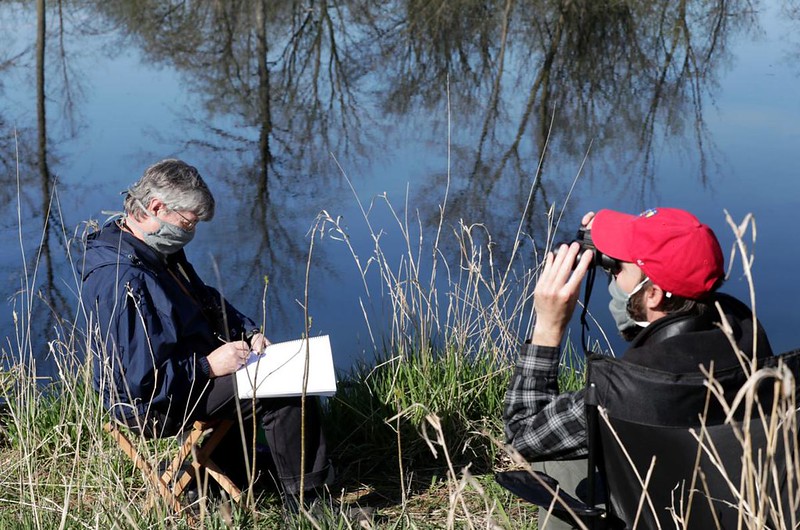
John Kraniak, Natural Resources Foundation of Wisconsin Membership Director, left, records a sighting of a Palm Warbler with Mike Hansen along Wingra Creek in Madison.
Are you looking for some inspiration for your Birdathon this year? Wondering how your team can stay socially distant, but still have a ton of fun? Check out a few ideas from last year’s participants!
-
Try backyard birding! Take this as an opportunity to get to know the wildlife hiding in your backyard. Ryan of the Lake Superior eBirders not only inspired the first Backyard Birding Challenge, but also conducted his Birdathon in his own backyard finding 63 species (and calling on fresh eyes from his two sons).
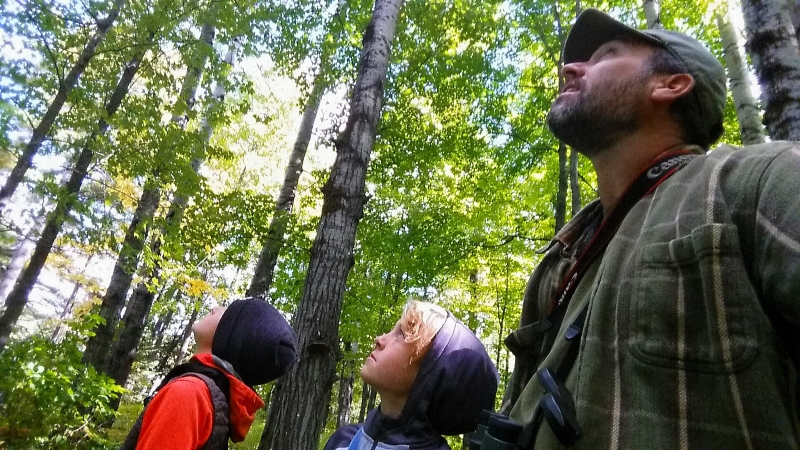
Ryan Brady and his sons focused their birding adventures on their backyard. Photo Credit: Ryan Brady
- Turn your Birdathon into a relay! Last year Madison Audubon‘s team Cheeseburger Cheeseburger selected their day and location, but the trick was each team member selected a different time of the day. This provided a shared experience for their team and an interesting look at the shift in birds throughout the day!
- You can be socially engaged while physically distant. This was a great way to phrase their experience, as the Cutright’s Old Coots split up to bird in small teams or with family in their respective corners of the state. They still shared the camaraderie by keeping in touch and sharing recaps and exciting highlights of their Birdathon day!
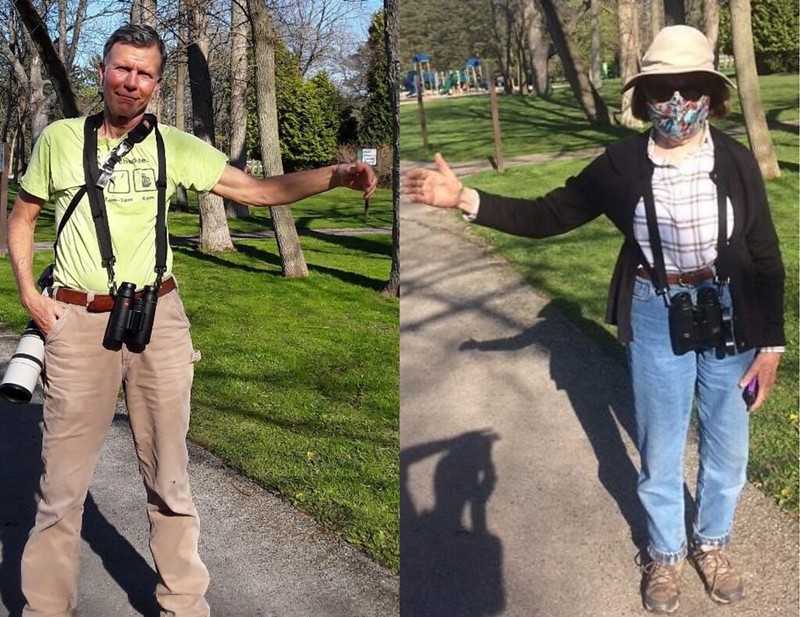
Cutright’s Old Coots (participating this year as Cutright’s Even Older Coots!) managed to bird together while apart and upped their species total in the process!
-
Bird local, go green! Team No Fossil Fuels – Just Lots of Peanut Butter planned a 70-mile bike route around Madison, finding 145 species across their favorite local birding hot spots. Sling your binoculars across your back, hop on a bike, and see where a local bike trail takes you!
- Make it a contest! A great way to stay engaged while apart is to create contests for your team. A few favorites inspired by Gathering Water‘s team Gathering Warblers last year include: earliest bird, most birds identified, best birding outfit, and coolest find during the day.
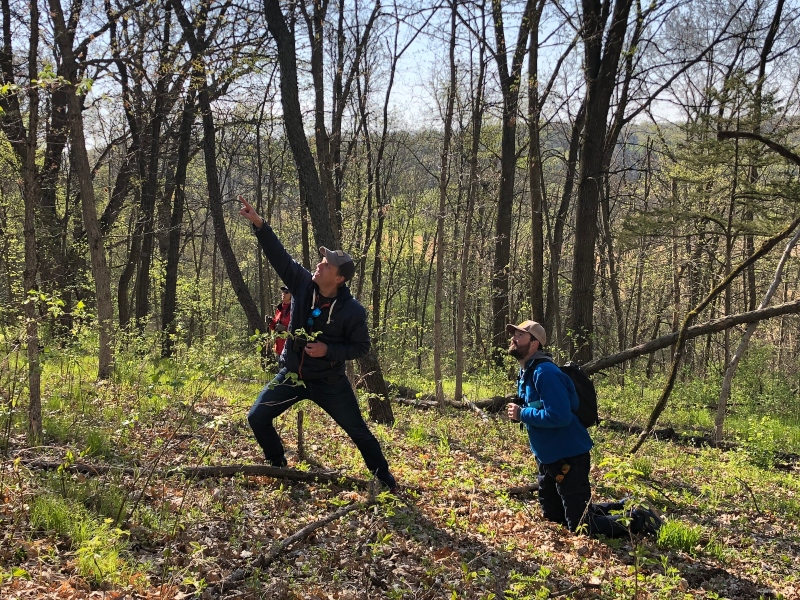
Who on your team will find the first bird? Add some friendly competition to the mix like Gathering Warblers! Photo Credit: Creal Zearing
These are just a few of the ways that you can plan your safe and healthy Birdathon adventures. We hope to see you join us for another year of the Great Wisconsin Birdathon.
If you haven’t registered your team yet, head over to www.WIBirdathon.org to get started. And don’t forget to snag your Birdathon swag so you can participate in style. We appreciate your continued support as we work to #BringBirdsBack!
Stay safe, and take care!
Written by Sarah Cameron, Great Wisconsin Birdathon Coordinator
